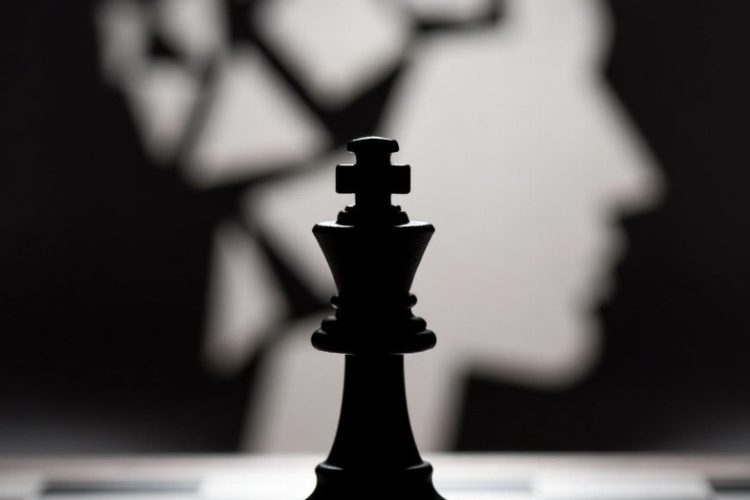Bobby Fischer, the brilliant chess champion who beat Boris Spassky in 1972, later suffered severe paranoia and mental decline. He believed the CIA or Soviets turned his dental fillings into listening devices that sent radio signals, vibrations, and dangerous radiation to monitor and control him. In the 1970s–80s he had all his fillings removed multiple times, once in Mexico, refusing any replacements. His fears grew into persecutory delusions, extreme anti-Semitism, and anti-American rants. He lived in isolation, accused Jews and the U.S. government of vast conspiracies, and died alone in Iceland in 2008. What began as eccentric behavior became full paranoid personality disorder, showing how untreated mental illness can destroy even the greatest genius.
Long Version
The Paranoia of a Chess Genius: Bobby Fischer’s Struggle with Mental Decline
Bobby Fischer, the iconic chess champion who captivated the world with his unparalleled genius during the 1972 World Chess Championship, remains one of the most enigmatic figures in the history of the game. His triumph over Boris Spassky in Reykjavik not only marked the pinnacle of his career but also symbolized a Cold War victory for the United States against the Soviets. Yet, beneath this veneer of brilliance lay a profound mental health struggle characterized by paranoia, persecutory delusions, and a gradual descent into isolation. This article delves into the multifaceted aspects of Fischer’s mental decline, highlighting his eccentricities, anti-Semitism, anti-Americanism, and specific fears, such as the belief that his dental fillings were manipulated into listening devices by intelligence agencies like the CIA or Russians. To provide deeper insight, we’ll explore the psychological underpinnings, environmental triggers, and long-term impacts on his life and legacy, emphasizing how untreated mental health issues can erode even the sharpest minds.
Early Signs of Genius and Instability
Born in 1943 in Chicago, Robert James Fischer exhibited extraordinary talent from a young age, becoming the youngest U.S. chess champion at 14 and a grandmaster by 15. His mother, Regina, a single parent with a background in medicine and activism, recognized his prodigious abilities but also worried about his social isolation and obsessive focus on chess. Family dynamics played a crucial role; Fischer’s biological father, Paul Nemenyi, a Hungarian physicist, was described as unstable with paranoid tendencies, suggesting a genetic predisposition to mental health issues. Regina herself endured decades of surveillance due to her leftist affiliations and time in Russia, which may have instilled a sense of constant threat in the household.
Early eccentricities foreshadowed deeper problems. As a teenager, Fischer was expelled from school for disruptive behavior, including kicking a principal, and he displayed hypersensitivity to perceived slights. Psychoanalysts noted his resistance to therapy, often accusing others of trickery when personal matters were addressed. By the 1960s, during international tournaments, he accused opponents of colluding—prearranging draws to disadvantage him—and demanded special conditions to counter imagined surveillance or monitoring. One associate once told him he was paranoid, to which Fischer replied that paranoids can sometimes be right, illustrating his self-awareness intertwined with denial.
These early indicators point to a paranoid personality disorder, a condition involving pervasive distrust and suspicion without full-blown psychosis. Environmental factors, such as the high-stakes pressure of competitive chess and familial instability, likely exacerbated these traits, setting the stage for more severe manifestations later in life.
The Height of Fame and Initial Cracks
Fischer’s 1972 victory elevated him to global stardom, but it also amplified his paranoid personality disorder traits. He feared electronic takeover through manipulative signals, believing Soviets or Russians might tamper with his environment—hiding booby traps on planes or poisoning his food. Post-championship, he retreated into seclusion, forfeiting his title in 1975 amid disputes with the International Chess Federation. This mental decline accelerated as chess, his anchor of rationality, faded from his life. Friends observed his growing insanity, marked by querulous paranoia and delusional paranoiac beliefs, where minor grievances escalated into elaborate conspiracies.
In the mid-1970s, Fischer joined the Worldwide Church of God, donating heavily before accusing them of satanic ties in 1977. This period saw the emergence of virulent anti-Semitism, despite his Jewish heritage (which he denied), influenced by exposure to extremist literature during tournaments and collecting related memorabilia. He viewed certain chess figures as enemies in a government conspiracy, blending personal rivalries with broader ideological delusions. This shift highlights how paranoia can intersect with cultural and political biases, transforming rational skepticism into irrational hatred.
The Dental Fillings Paranoia: A Symptom of Deepening Delusions
By the late 1970s and into the 1980s, Fischer’s paranoia manifested in bizarre health obsessions. Convinced that his dental fillings could act as antennas for radio signals, radio transmissions, vibrations, or even dangerous radiation from intelligence agencies, he sought fillings removal multiple times. One pivotal incident occurred during a fishing trip to Ensenada, Mexico, in the late 1960s or early 1970s. Fischer had a local dentist extract all his fillings but refused replacements, declaring he didn’t want anything artificial in his head. He feared these could be listening devices implanted by Soviets, Russians, or the CIA to enable surveillance and monitoring.
This belief stemmed from historical anecdotes about metal implants receiving signals, which Fischer extrapolated to his own situation. In the late 1970s, amid fears of toxins and bodily fluid contamination, he reiterated this concern, stating that if somebody took a filling out and put in an electronic device, it could influence thinking. Such actions were part of broader persecutory delusions, where he carried herbal potions like Mexican rattlesnake pills to thwart imagined poisoning by adversaries. Psychological analyses link this to paranoid personality disorder, exacerbated by genetic factors and the loss of chess’s stabilizing structure. Furthermore, this episode reflects a common theme in delusional disorders: the misinterpretation of everyday objects as tools of control, often rooted in real-world technologies like surveillance during the Cold War era, which fueled plausible yet unfounded fears.
Escalating Isolation and Violent Incidents
The 1980s brought further turmoil. In 1981, Fischer’s arrest in the Pasadena jailhouse exemplified his worsening state. Stopped by police while disheveled and using a pseudonym, he refused identification, leading to a 48-hour detention he described as brutal torture involving choking and isolation. This fueled his anti-Americanism, viewing the U.S. as a tyrannical regime conspiring against him. The incident underscores how paranoia can lead to self-sabotaging behaviors, alienating individuals from support systems and reinforcing their delusions through real conflicts.
Throughout the decade, Fischer’s isolation deepened. He rejected lucrative offers, lived as a recluse, and obsessed over a supposed heist at his storage unit, blaming it on powerful figures and calling for violence against those involved. In reality, items were auctioned for unpaid fees, but Fischer’s delusions persisted, illustrating the cognitive distortions typical of querulous paranoia, where legal or financial disputes become epic battles against shadowy forces.
Later Years: Exile, Rants, and Legacy
In 1992, Fischer defied U.S. sanctions by rematching Spassky in Yugoslavia, earning an arrest warrant that forced perpetual exile. The deaths of his mother in 1997 and sister Joan in 1998 compounded his grief, as he couldn’t attend their funerals. From the Philippines, he broadcasted rants in the late 1990s and early 2000s, denying historical atrocities and praising attacks against perceived enemies.
Arrested in Japan in 2004, Fischer spent months in custody before Iceland granted citizenship in 2005. He died in Reykjavik in 2008 from kidney failure, alone at 64. Films and books have immortalized his story, blending his chess mastery with tragic mental health battles.
Psychological perspectives emphasize that early intervention could have mitigated his paranoid personality disorder. Fischer’s life underscores the thin line between genius and insanity, where unchecked paranoia led to self-destruction. His legacy endures as a cautionary tale of untreated mental health in high-achievers, reminding us of the human vulnerabilities behind extraordinary talents and the importance of addressing mental health stigma in competitive fields.







